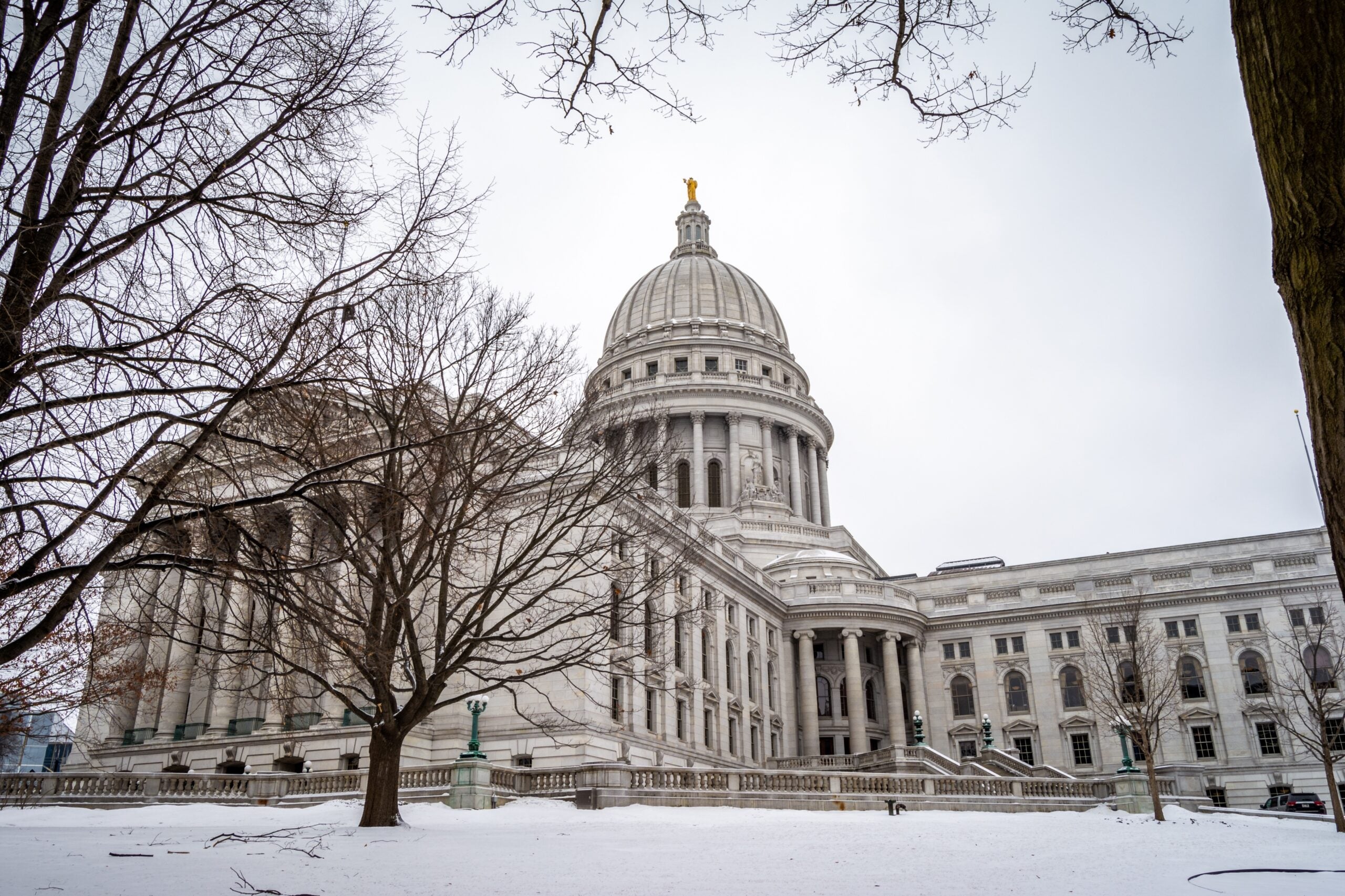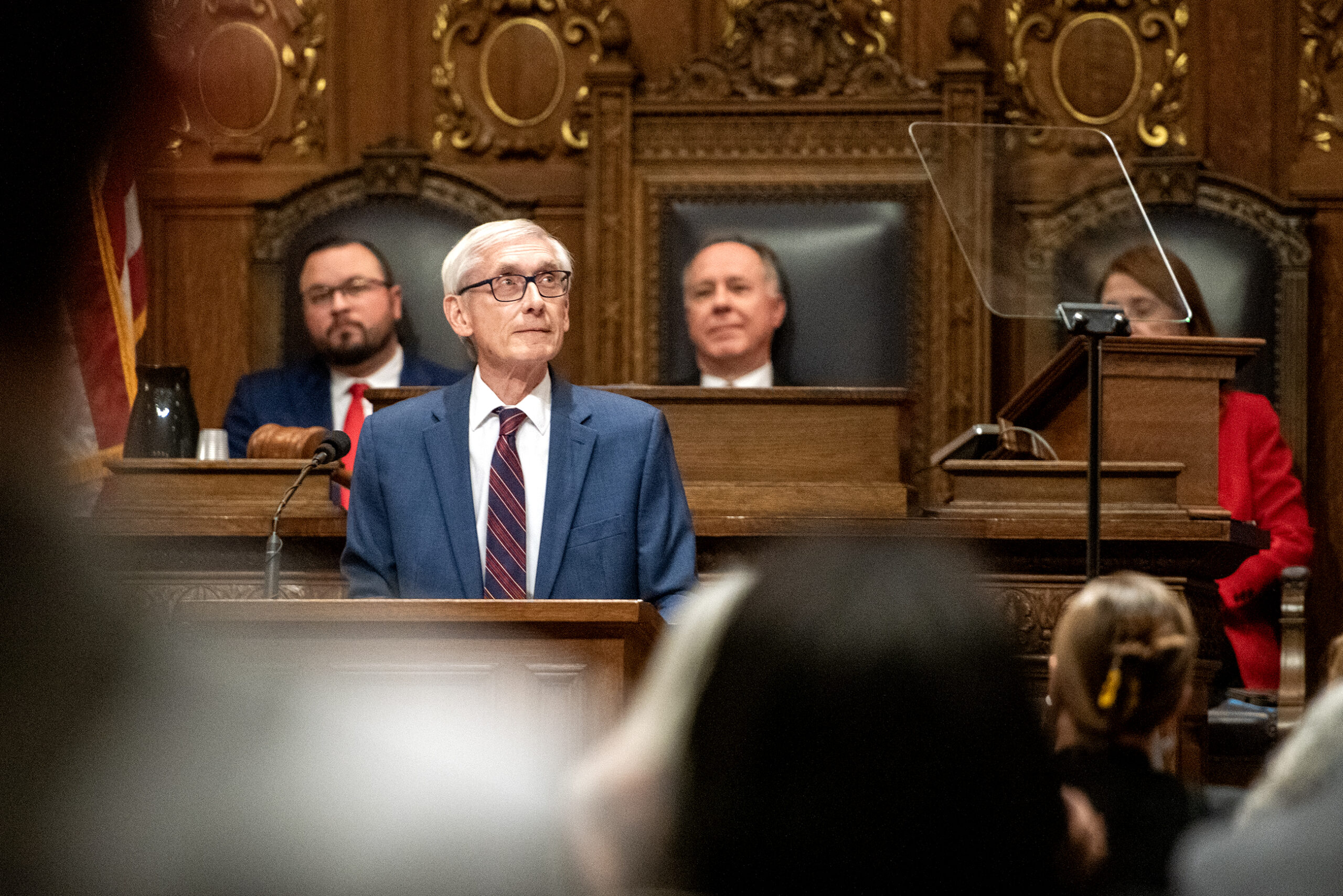The messy saga of state government’s response to the coronavirus pandemic went nowhere fast Friday as Republican state senators sent a broad COVID-19 bill to Gov. Tony Evers’ desk moments before Evers announced he would veto the plan.
The Senate’s vote came a day after GOP lawmakers voted to repeal Evers’ statewide mask mandate only to see the governor issue a new mandate about an hour later.
Both fights highlighted the partisan gridlock that has been the hallmark of Wisconsin state government during the COVID-19 pandemic, and Friday’s moves left both parties blaming the other for the potential fallout.
Stay informed on the latest news
Sign up for WPR’s email newsletter.
“Wisconsinites know a compromise when they see one, and this isn’t it,” said Evers in a written statement announcing his veto plans. “Unfortunately, Republicans once again chose to put politics before people.”
Compared to the fight over masks, the bill the Senate passed Friday is complicated, and includes many of the governor’s priorities mixed with several proposals Evers had previously referred to as “poison pills.”
In the early stages of these latest negotiations, Senate Republicans worked with the governor to pass a pared down COVID-19 bill. That proposal would have largely extended many provisions that were included in a bipartisan bill the Legislature passed and the governor signed more than eight months ago.
Friday’s proposal included provisions that would have extended the requirement that insurance companies cover COVID-19 treatments, prescriptions and vaccines. It also would have extended a waiver of the state’s one-week waiting period for applying for unemployment insurance.
Waiving that waiting period last year let the state qualify for enhanced federal funding for unemployment benefits. But the state’s waiver is set to expire Saturday.
According to the Legislature’s nonpartisan budget office, not extending the waiver will cost the state roughly $1.3 million each week in federal reimbursement funding.
“The governor needs to sign this bill,” said Senate Majority Leader Devin LeMahieu, R-Oostburg. “This bill is vitally important for the state of Wisconsin.”
The trouble for Evers is that Assembly Republicans added other ideas to the COVID-19 bill that he said he couldn’t support.
Those included a ban on COVID-19 vaccine mandates, not only from state and local governments but also from private employers. They also included a plan preventing state and local health officers from restricting gatherings in places of worship, a power that’s currently allowed in Wisconsin law.
Also included in the bill Evers vetoed Friday is a provision giving the Legislature’s budget committee veto power over any federal funds related to COVID-19.
“Republicans once again chose to put politics before people, abandoned that compromise, and passed a bill they knew I wouldn’t sign,” Evers said. “I am calling on Republicans in the Legislature to stop playing politics and get to work sending me the compromise bill we worked on together.”
While the fight over Evers’ powers to issue the mask mandate may get sorted out in a challenge before the Wisconsin Supreme Court, it’s unclear how Evers and Republicans will resolve their differences over the COVID-19 bill.
Republicans could try to override a veto by the governor, but they lack the two-thirds majority needed to do that.
Similarly, Evers could ask Republicans to send him a pared down version of the legislation that includes only areas of bipartisan agreement, but Assembly Republicans have been unwilling to take that step.
Wisconsin Public Radio, © Copyright 2025, Board of Regents of the University of Wisconsin System and Wisconsin Educational Communications Board.




